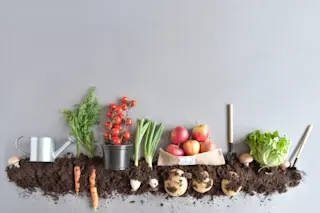Banana peels and coffee-ground mountains begin to pile up when you’re eating all meals at home for weeks on end. Maybe it’s finally time to get serious about composting.
Potential composters might shy away from separating out their food scraps because it’s time-consuming or messy, says Keima Kamara, a solid waste specialist with the Oklahoma State University Extension. “Some people want to just put everything in the trash bin and put it in the dumpster,” she says. But your discarded veggies can build up healthy soils and reduce greenhouse gas emissions with minimal personal oversight, depending on the method you choose.
Composting essentially helps organic matter, like food waste and yard trimmings, turn back into the raw ingredients other plants need to grow. Microbes break down the scraps and the resulting compost delivers sweet, sweet molecules to whatever is growing on a farm, garden and beyond.
Sprinkling the material over ...














